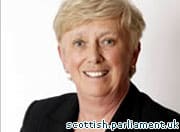Scottish politicians yesterday threw out a controversial bid to make assisted suicide legal in the country.
MSPs voted 85 to 16 against the End of Life Assistance (Scotland) Bill in a free vote. There were two abstentions.
There had been widespread opposition to the contentious proposals and the Scottish Parliament committee responsible for scrutinising the Bill had said it was not convinced that there was any need for a change in the law.
Disturbing
Labour’s Michael McMahon said the plans were “dangerous and unnecessary”.
Mr McMahon, who is convener of the Parliament’s cross-party groups on palliative care and disability, said: “Society needs to know that you can’t have both physician-assisted suicide and palliative care. In reality you can only have one or the other.”
Conservative MSP Nanette Milne said “the idea of actively and deliberately hastening death, by assisting someone to die, is extremely disturbing”.
Vulnerable
Dr Calum MacKellar, from the Scottish Council on Human Bioethics, commented that the vote was “a victory for all the vulnerable people who may have felt under pressure to end their lives”.
And a spokesman for the Roman Catholic Church said the result showed there is “no real hunger for this kind of change in the country”.
The Bill was proposed by Independent MSP Margo Macdonald. It planned to allow the terminally ill to seek assistance in ending their lives, and it would have also effectively legalised euthanasia by allowing doctors to administer drugs to terminally ill patients who were incapable of taking them.
Mrs MacDonald said: “Parliament’s will must be respected, but parliament’s will can change. If I stand next time, and if I’m elected, people will know without a doubt that I’m going to pursue the idea and I’ll surely be able to say that there’s some sort of mandate implicit in that.”
Opposition
In January a BBC Scotland survey of two thirds of MSPs revealed that 53 MSPs were against the Bill, 17 were in favour of it while 20 were still undecided.
In September the British Medical Association (BMA) Scotland warned that the majority of doctors are steadfastly opposed to the legalisation of assisted suicide in Scotland.
In a written submission to the committee analysing the Bill, Helen Reilley, Public Affairs Officer at BMA Scotland, cautioned: “Whilst there is a wide range of views among doctors, the BMA is clear that the majority oppose a change in the law and the Association has established policy that the law should not be changed to permit assisted suicide.”
Alliance
In June over 14,000 people signed a petition against the end-of-life Bill. The petition was organised by campaign group Care Not Killing, an alliance composed of churches, bioethicists, medical groups and disability groups.
John Deighan, parliamentary officer for the Roman Catholic Church in Scotland, at the time said the survey represented a “real groundswell of Scottish opinion”.


